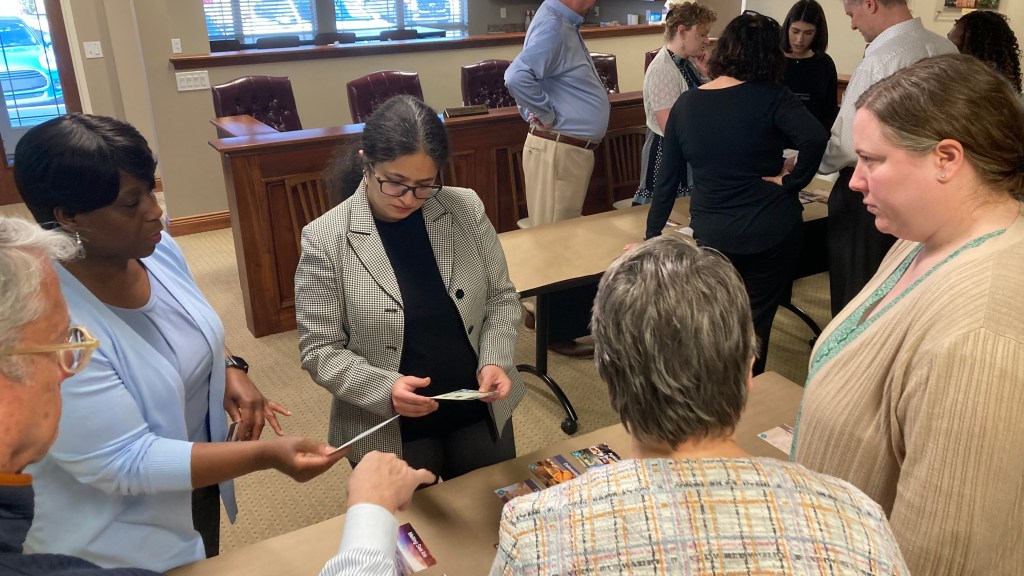The city of Avon Lake is looking to go a bit more green, and not necessarily as in the buzzwords of sustainability, but rather, to save some money on energy costs.
And this, in turn, could save taxpayers a significant amount of money and enable certain city-owned properties to keep the lights on longer.
Avon Like is one of only six cities in Ohio chosen to participate in the Northeast Ohio Public Energy Council Sustainable Technical Assistance Resources pilot program, which provides technical support and funding to local government, and is part of NOPEC’s education pillar that works to educate communities and residents on energy conservation, sustainability and resiliency.
NOPEC is a governmental energy aggregator in Ohio that negotiates lower rates for electricity and natural gas for its member communities, and Avon Lake City Council member Amy Gentry spearheaded the effort to get the Sustainable Technical Assistance Resources program implemented.
In her role as chair of the building and utility committee, Gentry said she was excited about the prospect of finding energy waste throughout Avon Lake.
“My goal is to help Avon Lake become a more sustainable city, so part my role is to work with NOPEC and they are most definitely interested in helping make sure cities are not wasting energy,” Gentry explained. “They want cities to be more efficient with their energy usage, and figure out where we may be wasting energy, where could we install solar to have some battery backup power, where do we need better insulation.
“How much savings would we get by taking a look holistically at all of our buildings and figure out what’s the status of all of them from an energy use and loss standpoint?”
The program is provided through a federal grant that enables NOPEC to go through city buildings and provide a deep assessment on such things as energy loss, and provide real world solutions to combat that, such as additional insulation, more efficient windows and doors, better heating and air conditioning units, window tinting, lighting and more.
The city also will provide NOPEC with the past 12 months of utility bills from city-owned properties for comparison purposes and see if they are paying comparable amounts for comparable buildings, or if there is something causing a spike in utility bills out of the normal range.
The grant enables NOPEC to take a look at all city-owned properties, and will do what Gentry termed a “deep dive” into two buildings it believes need the most attention.
All of this is at no cost to the city, however, should officials wish to implement those recommendations, the city would be on the hook for those updates.
Those funds, however, would be part of normal updates and maintenance for the properties, anyway, Gentry said.
There also is a solar site assessment where the potential of installing solar panels on city property will be explored, as will the potential savings through city fleet attrition to replace with electric vehicles.
“If we can save taxpayers some money on energy bills, why wouldn’t we take advantage of that opportunity?” Gentry said. “Let’s see if there’s savings to be had. If we can keep lights on at the library or City Hall without using gas generators, let’s see what the options are.
“When we have storms and the electric is out, and we have to keep certain buildings up and running, solar powered battery backup could be an excellent solution.”
The move to participate was overwhelmingly supported by committee, and Council voted to approve that Mayor Mark Spaetzel send the letter of intent to participate to NOPEC.
Gentry said she expects to have some type of kick off to mark the beginning of the yearlong process with NOPEC where more discussion will take place.
Meantime, the city is gathering data to submit and expect to have the program completed with recommendations by December of next year.
The city is not obligated to perform the recommendations.
